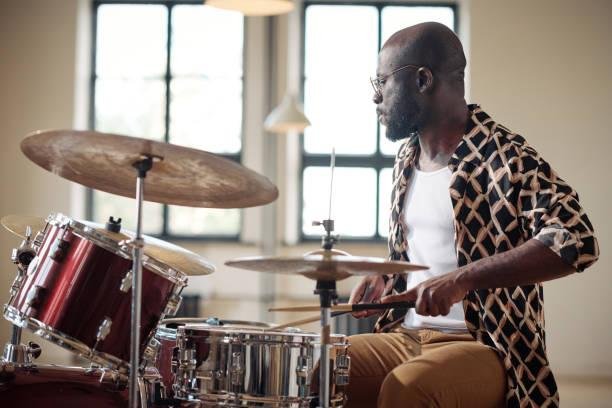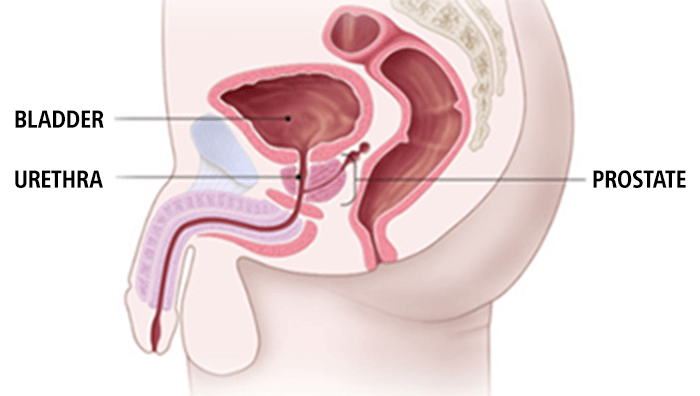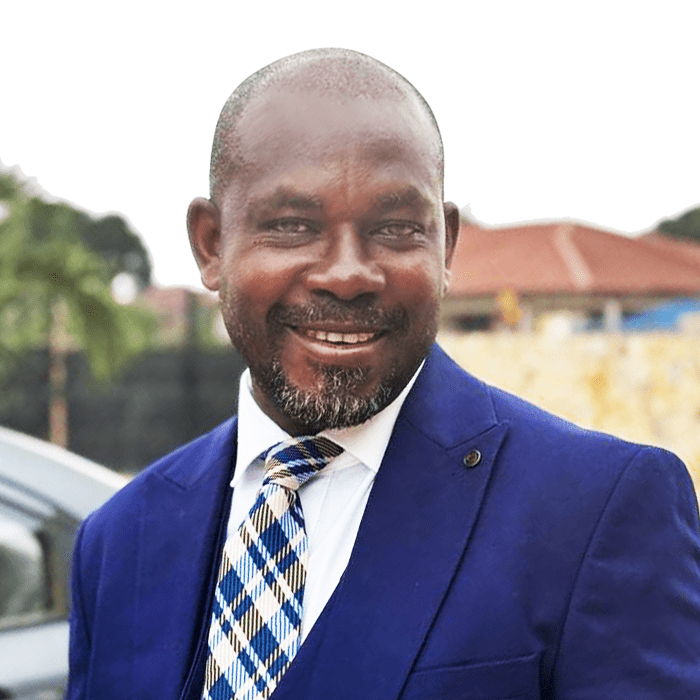Health Essentials
Sleep may not always be the answer to your needed rest

Sleep is powerful and definitely one of the major legal performance enhancing drugs of all time but even sleep answereth not all questions related to adequate rest.
“Doctor, I am so tired. I still feel drained even after a 10-hour sleep.”
“I feel lonely, unappreciated and extremely tired. Help me doctor.”
These are two of the numerous examples that clients complain of on a daily basis. We are in “an energy crisis that has nothing to do with oil and gas” and unless we learn to take the necessary breaks and make minor adjustments to our way of life we are heading for a generation that has burnt-out high achievers. I am only drawing attention to a crisis that is often overlooked.
Deep, adequate sleep is an extremely powerful life-changing natural phenomenon that many people trample upon. If you had to make a single change to your life to grow healthier I will suggest you sleep more if you sleep less than seven or eight hours a day. Yes, napping also has an energizing role in our health quest. Rest is such a broad and grey area and it appears sleep is only part of the whole enigma of REST. Now you will understand why an evening with family or friends out of home after a tiring week invigorates you. Also there must be some magic spending time by the seaside even if you don’t sleep. How about playing music with friends? Rest is much more than sleep and though sleep is extremely important all the other forms of rest do matter as well.
A look at the 7 types of rest
1. Physical rest
a. We all know that feeling when you just want the body to take a break. It turns out physical rest can be broken down into two
i. Passive Rest ; lying down, sleeping, napping
ii. Active Rest; yoga, massage, stretching etc.
2. Mental rest
Typically one feels irritable, forgetful and unable to concentrate at work etc. May get eight hours of sleep yet feels horrible. This may be tell-tale signs that you need mental rest
How to fix this;
- Switch off your brain. Take short breaks every two hours talk about or write down your feelings so you are not carrying them around
3. Sensory rest
With the noise all around, bright lights, screen time and a host of others, our senses feel overwhelmed.
How to fix this;
- Simply close your eyes for a minute
- Unplug intentionally; Take a break from computers, phones, bright lights, noise and conversations
4. Creative rest
It is important to awaken the excitement deep within us. The glitter in our eyes. That is another realm of rest.
How to fix this;
- Walk in a beautiful place in nature, watch a movie, play a musical instrument, garden or do art. The good news is you do not even need to be good at it.
5. Emotional rest
Often we are unable to say NO when that is exactly what is needed. We accept additional engagements only to sit in our corner later and feel lonely and unappreciated.
How to fix this;
- Cut back on people-pleasing “adventures”
- Create time to freely express your feelings and emotions. “ME-TIME” and SELFCARE can’t be over emphasised
6. Social rest
It is rare to find someone who needs emotional rest BUT has no social rest deficit. They often come as a “couple”. We need to be able to differentiate between relationships that energise us and those that drain all we have.
How to fix this;
- supportive and positive people, rather than people that exhaust you.
- Engage in conversation and stay focused. Paying attention does wonders to our brain
7. Spiritual rest
We all need to rely on the power of a superior being and for me it is GOD! We need that sense of belonging (child of God), love and a PURPOSE. That gives us the needed rest
How to fix this;
- Prayer
- Praise and worship to The Almighty
- Meditation
- Service to the community
My advice is let us put all these into practice as often as possible. Every day is possible. Do not wait till you are too tired or feel totally broken before you search for these tips. The time is now and remember SLEEP is supreme but we need the other forms of rest to be complete. Seek professional medical care if you continue to feel “unrested”.
AS ALWAYS LAUGH OFTEN, ENSURE HYGIENE, WALK AND PRAY EVERYDAY AND REMEMBER IT’S A PRICELESS GIFT TO KNOW YOUR NUMBERS (blood sugar, blood pressure, blood cholesterol, BMI)
Dr. Kojo Cobba Essel
Health Essentials Ltd/Medics Clinic
(www.healthessentialsgh.com)
Dr. Essel is a Medical Doctor with a keen interest in Lifestyle Medicine, He holds an MBA and is an ISSA Specialist in Exercise Therapy, Fitness Nutrition and Corrective Exercise. He is the author of the award-winning book, ‘Unravelling The Essentials of Health & Wealth.
Thought for the week – “Whatever you practise grows stronger, what are you practising now?”
References:
1. Saundra Dalton-Smith, MD – ideas.ted.com
Health Essentials
The Prostate Has Found Its Voice

The prostate gland, a small but essential organ found only in men, plays a key role in reproductive health. It produces fluid that nourishes, protects, and transports sperm, yet many focus only on its connection to prostate cancer.
Location & Function
- Situated between the bladder and penis, with the rectum behind it.
- The urethra passes through the prostate, carrying urine and semen.
Common Prostate Conditions
1. Prostatitis – Infection of the prostate:
- Symptoms: chills, fever, pus-like urethral discharge, painful urination, groin/testicular pain, painful orgasms, erectile dysfunction.
- Advice: Seek professional help; do not self-medicate.
2. Benign Prostatic Hyperplasia (BPH) – Non-cancerous enlargement of the prostate:
- Symptoms: frequent urination (especially at night), urge incontinence, difficulty starting urination, weak stream, painful urination, blood in urine, terminal dribbling, and in severe cases, inability to urinate.
- BPH can be extremely painful, sometimes compared to labor pains.
3. Prostate Cancer – Common among men, especially black men, often aggressive and with earlier onset:
- Risk Factors: older age, African descent, family history, obesity.
- Symptoms: frequent urination, straining, blood in urine/semen, weak urine flow, new erectile dysfunction; advanced stages may include fatigue, weight loss, and bone pain.
Diagnosis
- Digital rectal examination – checks for irregular or hard areas.
- PSA test, biopsy, ultrasound, CT/MRI/PET scans, bone scan.
Management
- Holistic approaches include watchful waiting, medication, surgery, and radiation (external & brachytherapy).
- Always discuss all options with your healthcare provider.
Risk Reduction Tips
- Regular screening
- Healthy, varied diet rich in fruits and vegetables (carrots, tomatoes, broccoli, kale, cauliflower)
- Maintain a healthy weight
- Exercise at least 5 days a week
Final Advice
- Share this information – the prostate needs support!
- Maintain good hygiene, walk and exercise daily, pray, and know your numbers (blood sugar, blood pressure, cholesterol, BMI).
Thought for the Week:
“There is no magic formula to being happy but making a conscious effort to be happy goes a long way.” – Dr. Kojo Cobba Essel
Dr. Essel invites readers to the La Palm Royal Beach Hotel Wellness Festival on Saturday, November 29, 2025, at 6 a.m., to walk, exercise, network, and share ideas to stay healthy.
Contact: dressel@healthessentialsgh.com
By Dr. Kojo Cobba Essel
Join our WhatsApp Channel now!
https://whatsapp.com/channel/0029VbBElzjInlqHhl1aTU27
Health Essentials
Stop the silent killer: Breaking myths to prevent sudden deaths from high blood pressure

Every week in Ghana, a life is cut short, sometimes in the middle of traffic, sometimes at a desk, sometimes in the quiet of sleep. A father doesn’t come home. A sister doesn’t wake up.
A colleague slumps at work and never gets back up. Families are left asking why and you will hear statements like what happened? Was he sick? I just saw him, he has not shown signs of ailment, what a shock and so on.
Behind many of these sudden tragedies is a quiet, invisible force: high blood pressure, or hypertension. It doesn’t scream for attention. It doesn’t always show symptoms. But it tightens its grip silently on hearts, on brains, on lives.
This is not just a medical issue. It is a human one, it is about behaviour, it is about ignorance and it is about lifestyle. It is the grandmother who never got her blood pressure checked because she felt “fine.”
It is the taxi driver, the statistician, the nurse who ignored his pounding headaches, thinking it was just stress. It is the young lady who was so vibrant at church and no one suspected she could fall and die. Because it shows no symptoms.
The alarming numbers we cannot ignore
The Ghana’s 2023 STEPS Survey on Non-Communicable Diseases conducted by The World Health Organisation, Ghana Health Service and Ghana Statistical Service has revealed findings that should push for action.
According to the report, 21.7 per cent of adults aged 18 to 69 in Ghana are living with high blood pressure. Even more alarming is that 51.1 per cent of those with hypertension are not aware of their condition.
This means that more than half of the people with dangerously high blood pressure are walking around without knowing it until tragedy strikes. That is the real danger of this silent killer.
Literature has shown that hypertension is preventable and manageable. But only if we treat it like the threat, it is. That means regular checkups; that means understanding the risks and that means talking about it openly, urgently, and with compassion.
The deadly power of myths
Why are so many Ghanaians untested or untreated? Is it out of ignorance, or the pervasive myths about hypertension and its treatment?
• Some believe blood pressure medicine “weakens the body” or “shortens life.”
• Some believe blood pressure medicine “weakens the penis and kills sexual drive”
• Others think once you start taking medication, you are “dependent for life.”
• Many say, “I feel fine, so I must be fine.”
These beliefs are not only false, but they are also deadly. The truth, according to the World Health Organisation, is that effective treatment can reduce the risk of stroke by up to 40 per cent and heart attack by 25 per cent. Avoiding treatment does not prevent dependence rather, it accelerates death.
As Dr Patrick Kuma-Aboagye, former Director-General of the Ghana Health Service, has noted, “Hypertension is preventable and treatable, but our biggest battle is misinformation and late detection.”
A national conversation we must have
This is not just a health issue it is a national emergency. Sudden deaths rob families of breadwinners, communities of leaders, and the country of its productivity. In every obituary notice caused by hypertension, there is a story of loss that could have been prevented with a simple blood pressure check and treatment.
Behind every life saved is a moment of awareness, a decision to act, therefore, the media must rise to the challenge.
Radio and television programmes should dedicate regular airtime to demystify hypertension. Newspapers should carry survivor stories, expert interviews, and practical lifestyle advice.
Social media influencers should spread awareness in local languages, reaching young people who assume they are safe.
Public health experts also have a responsibility. Screening must move beyond hospitals into churches, mosques, markets, schools, and workplaces. People should not have to wait for illness to know their BP status.
What we can do together
To stop the silent killer, we need a collective response:
• Check your blood pressure regularly, even if you feel healthy.
• Follow medical advice faithfully if diagnosed because treatment saves lives.
• For healthy lifestyle, eat less salt, reduce alcohol, reduce starchy, fat and oil intake, avoid smoking, and exercise at least 30 minutes daily.
• Encourage one another talk about blood pressure in families, communities, and workplaces.
Conclusion: Silence is killing us
What kills is not just the disease, but the silence, fear, and myths that surround it. The STEPS 2023 report has sounded the alarm: nearly one in five Ghanaian adults has high blood pressure, and more than half don’t even know it.
This is the time for bold conversation, public education, and decisive action. The media, health professionals, policymakers, and ordinary citizens must join forces to expose the myths, spread the facts, and save lives. Let us not wait for another headline.
Let us make blood pressure a national conversation before it becomes a personal tragedy. With awareness, treatment, and collective will, Ghana can stop the silence and stop the sudden deaths from the silent killer.
Written by: Ansah Moses Teye-Akam – Senior Statistician, Sociologist/Scientific Research Organisational Expert.
Email: moses.ansah@ statsghana.gov.gh/ansahmosesteyeakam@ gmail.com.gh Contact: 0244539034 / 0204359034
Join our WhatsApp Channel now!
https://whatsapp.com/channel/0029VbBElzjInlqHhl1aTU27






